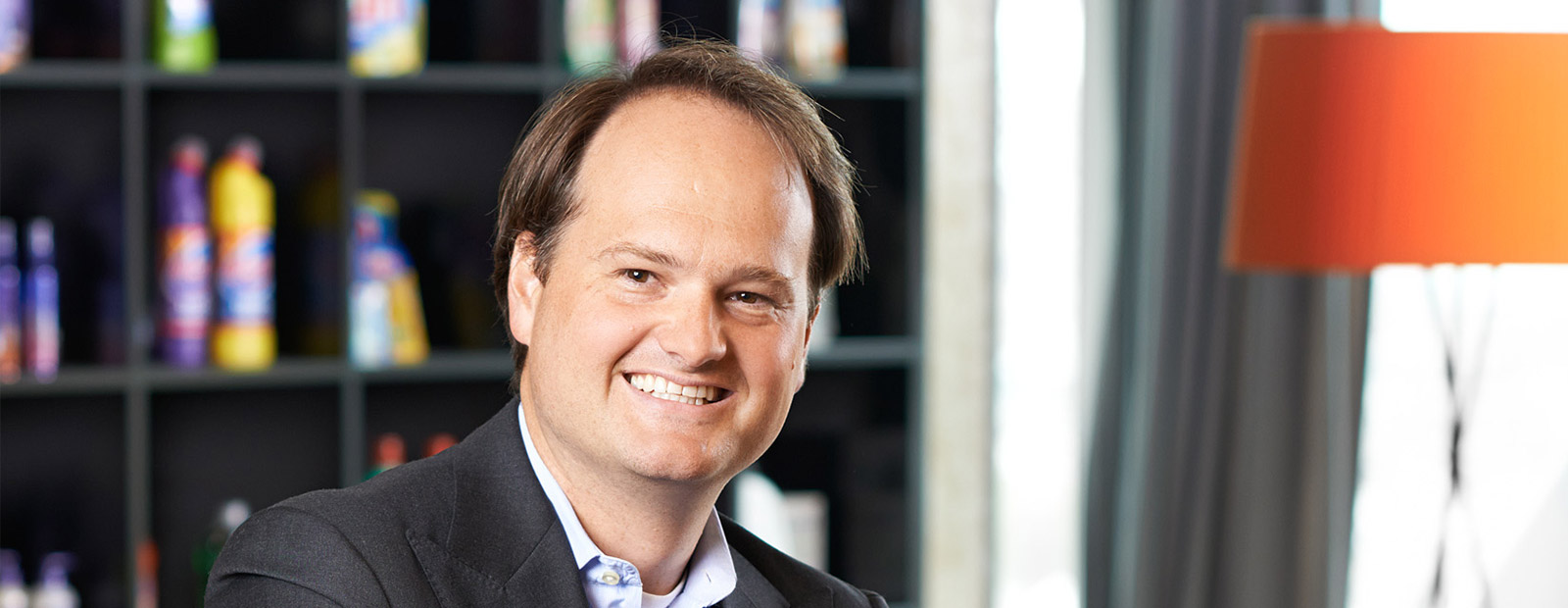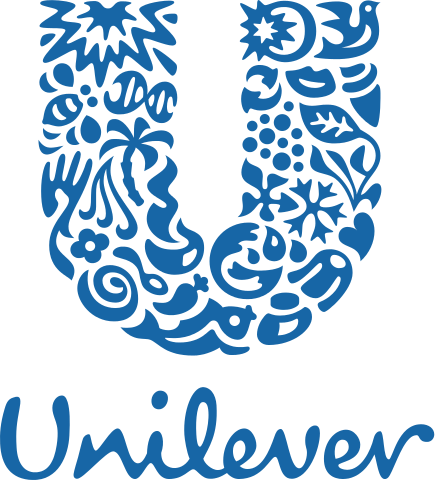
Willem Brandt

What was your family like growing up?
“My father worked for Shell his entire life, he taught me norms and values, such as integrity and respect. At Unilever I took like a duck to water, because their business values matched my father’s. My mother was a successful interior decorator, she taught me to be creative and fueled my love of entrepreneurship. When I was in high school and set up a business in bridal- and corporate photography, she financed our equipment. Her father had been supportive of her in the same way and that had encouraged her immensely. She wanted the same thing for us.”
What did you learn, being a young photographer?
“I learned how important it is to focus on your customers. They were simple things: most photographers back then refused to hand over the negatives, ensuring costumers paid a hefty sum in repeat orders. We did not do the same. We printed all the photos and sold the negatives along with them. We always wore suits on assignments. Many of our coworkers wore slacks - you don’t want that at your wedding! We stood out, which meant I was making a lot of money from age fifteen.”
After high school you went to law school.
“I wasn’t sure whether it was going to be law or economics for me and in Utrecht I could do both. I soon learned law was more interesting. When I was in high school, I loved taking Latin, I enjoyed taking apart complex sentences, to work out what path to take in order to get to the solution. In the end, that is - as well as finding a diagnosis - the same in business. And that is what I really like."
Did you always dream of a career at Unilever?
“No, I first looked into the job market extensively, first at law firms, then at banks. I was doing an internship at ABN AMRO in Dubai and then I discovered my love of brands, at quite a late stage. Friends of mine had already been flirting with companies such as Unilever and Heineken and I was curious to learn what drew them so much. I applied for a business course at Unilever. When I spoke passionately about ice creams for two hours, over drinks, I realized I really did love this. Unilever appeals to me due to its focus on analysis - you need brains in order to succeed here - but also for its creativity. Everyone is always creating something here, whether it is a new product, or a campaign: creativity and intuition are pivotal. And of course I really like the commercial aspect. The kicks you get from seeing your own product at the store, that’s awesome. Tex Gunning, former chairman, was my final reason for sticking around here. I found him inspiring and thought: I doesn’t matter what it is I am doing after this, the things this guy will teach me about leadership while being in charge here, will prove to be invaluable to me for the rest of my life."
What was his force of attraction?
“Tex brought energy to the company. He was a visionary, with an enormous growth mentality and a strong will to win. When he entered a room there was electricity in the air. He led conferences at the Gelredome (Dutch soccer stadium in Arnhem) at the time, where we assembled with ten thousand people to talk about the growth of the company and everyone’s individual part in it. It was unbelievable how he was able to touch everyone and reshape their attitude. Tex Gunning wasn’t a saint, of course he had flaws. But I wanted to learn more from him, as a young trainee."
At Unilever you were hired as a trainee. What did you learn there?
“I started off in fieldwork, as vendor of Cup-a-Soup machines. After six years of theory during my degree, I was back in the mud. I received nine negative responses, a positive reply the tenth time and that would make me inanely happy. After three months I would return to the office, being a rookie and I would tell the sales director with twenty years’ experience below his belt precisely which channel was working and which wasn’t. I told him free distribution was working, as well as what should really be changed. It was much appreciated. The fieldwork was an immensely valuable lesson. I learned you can think up literally anything from your desk, but you will truly learn whether something actually works once you are on the market, when you talk to consumers, and see for yourself, taste and smell. After that I became junior brand manager on the team that was responsible for Calvé and Chicken Tonight, then I was made in charge of Calvé Peanut butter, as well as part of the range in sauces."
And then you got the opportunity to join INSEAD.
“After four years of pure marketing and with a background in law, I was eager to learn how it works in a company. At INSEAD I saw what’s for sale in the world, I sat at the conference table with well-known consultants, but I decided to return to Unilever. Many of my friends at INSEAD complained about the enormous pressure and the lack of influence they were able to exert as consultants. When I told them I was thinking about becoming a consultant, they told me: ‘You are out of your mind. You are one of the few people who is still passionate about what you did before INSEAD, twelve months on. Don’t lose that!’ ”
What became your job upon returning to Unilever?
“I became key account manager for Albert Heijn and Dirk van den Broek. It was 2004 and the price war in retail had just begun. Exciting things were about to happen. Erik Bras, sales director at the time, and Mark Goedhart, marketing director back then, had come up with the role they wanted me to play on my return. Mark was somewhat paternal about it. ‘If you are destined to be general’, he said ‘you could become one through the Pentagon or the armed forces. You should pick the path which provides you with the most energy.
Who else inspired you during your career, besides Mark and Erik?
“This is Unilever, its people are top notch. In an organization such as this one there is always someone at the top of their game, and you get to feed off that. I always try to identify those who excel in their particular field and then I suck up their knowledge like a sponge. I am always reminded of Nial FitzGerald, one of Unilever’s former CEOs. He had an incredibly complex job, but behind his desk was a tile on the wall with a message: does it sell soap? In large organizations we are usually apt at making things complicated, but the ultimate question is whether the things we do contribute to the selling of soap."
What is the best career choice you've made?
“I am grateful to have made steps in my career at Unilever, without having to go abroad. My wife is a surgeon and when she was a resident I did not want to leave the Netherlands, because it would have kept her from developing at the same pace I was. I know of companies where CEOs have been known to say: you only get to say no to an assignment abroad once, the second time you’re out. It is different at Unilever. I am also very happy with my current job. I was 36 when I got it. At a lot of other companies you do not get to become country manager at my age, no matter how good you are, because first you need to make all the required other promotions. My decision to go to Unilever at the start of my career was a lucky one, because the profession, the industry, but particularly its culture really suit me."
What are your best assets?
“I am good at communicating. I listen, I am emphatic, I formulate messages well, I instinctively know what someone else is driven by and I am able to act upon it. I can touch someone rationally, but also emotionally.”
What is it you want to work on?
“I would like to develop a culture at Unilever where execution matters. We have many smart people working here, who think up clever strategies, who are good at selling our products and designing them well. But in our line of business these things don’t count when the customer decides not to pick up our product, nor pay for it, or take it home. Last weekend I passed ten shops, to find the isles looked pitiful. Despite brilliant commercial deals made at our head office, despite supplies at the distribution center, despite a great marketing campaign, no one got to buy one of our ice creams, because apparently the frequency of the trucks driving to and fro the shop from our distribution center had been too low. All of our work prior to that had been in vain. I want to make it work.”
What is it you want to teach young people eager to have the same career you do?
“Be honest with yourself. Young people sometimes lose sight of their passion, ending up striving for a false ideal instead. You could be good, but when you aren’t passionate about what you do, yet need to invest fifty to sixty hours a week, you won’t be making a difference. When you are good and love what you do, then you will be successful and grow your wings soon enough. Furthermore, I think it is essential to aim high. Go for top of the bill, making an exit remains an option. But it’s not obligatory of course. At Unilever I get to fulfill my full potential and I am grateful for it on a daily basis. I would wish an organization such as this one for everyone."
2013 – present
VP Global Sales, Unilever
2011 – present
Country Manager/VP Sales Nederland, Unilever
2009 – 2011
Sales Director, Unilever
2007 – 2009
Marketing Director Benelux, Unilever
2006 – 2007
Ice Cream Director NL, Unilever
2004 – 2006
National Account Manager Ahold, Unilever
2000 – 2002
Senior Brand Manager (Lipton en Calvé)
1999 – 2000
Assistent Brand Manager Chicken Tonight
